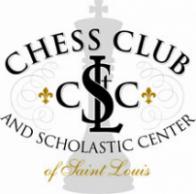Conducted during the 2006-2007 school year, this dissertation evaluated the impact of a weekly after-school chess club intervention on Hispanic students’ performance on the reading and math sections of the Texas Assessment of Knowledge and Skills (TAKS). The author randomly selected 27 treatment students from a pool of chess club students across five different elementary schools in a predominantly Hispanic district in Texas; 27 control group students were selected from the same schools. Treatment students self-selected to participate in the chess club, and control students did not play chess—it is unknown if control students participated in any other after-school activity. Using ANCOVA, the study found an effect size of 1.455 standard deviation units in math and 1.436 standard deviations in reading. The results were statistically significant. The study was eligible for inclusion in the systematic literature review and categorized as a Tier III study. The sampling technique does not qualify as random assignment, because students self-selected to participant in the intervention. If there are systematic differences in student characteristics between the two groups, results may be biased. The study focuses on Hispanic students which limits its generalizability to other student populations.
OUR MISSION It is the mission of the Saint Louis Chess Club, an educational organization, to maintain a formal program of instruction to teach the game of chess and to promote and support its educational program through community outreach and local and national partnerships to increase the awareness of the educational value of chess.

Wheelchair access is available in the rear of the STLCC building. Please proceed through the parking lot to our east and around to our back door. If you need additional assistance, please contact us at 314-361-2437 .
The STLCC does not discriminate on the basis of race, color, religion, national origin, sex, sexual orientation, gender identity, age, ancestry, citizenship, genetic information, veteran status, marital status, pregnancy, disability, and any other category protected by applicable federal, state, or local laws or regulations in administration of its educational policies, admissions policies, scholarship and loan programs, events, programs, or activities.
The Saint Louis Chess Club complies with the Internal Revenue Service's guidelines regarding publication of its non-discrimination policy in its brochures, catalogs, advertisements and otherwise making it known to the general community.
Any violation of this policy should be reported to the General Manager, Joy Bray, jbray@saintlouischessclub.org - 314.361.2437, Administrative Director, Tad Middleton, tmiddleton@saintlouischessclub.org -314.361.2437 and/or the HR Manager, Cathy Gallaher, cgallaher@saintlouischessclub.org - 314.332.5582.

The integrity of Saint Louis Chess Club's relationship with minor players is paramount to the Chess Club's educational mission and success. All individuals employed by or working under the direction or authority of the Saint Louis Chess Club are expected and required to maintain appropriate boundaries and relationships with minors and are strictly prohibited from engaging in sexual misconduct, hazing and harassment.

We encourage any victim or other persons with information regarding inappropriate conduct to contact Cathy Gallaher, Saint Louis Chess Club HR Manager at cgallaher@saintlouischessclub.org. You may also make a report confidentially, and if you wish, anonymously, through our ethics reporting hotline managed by Navex at (833)221-3624.


